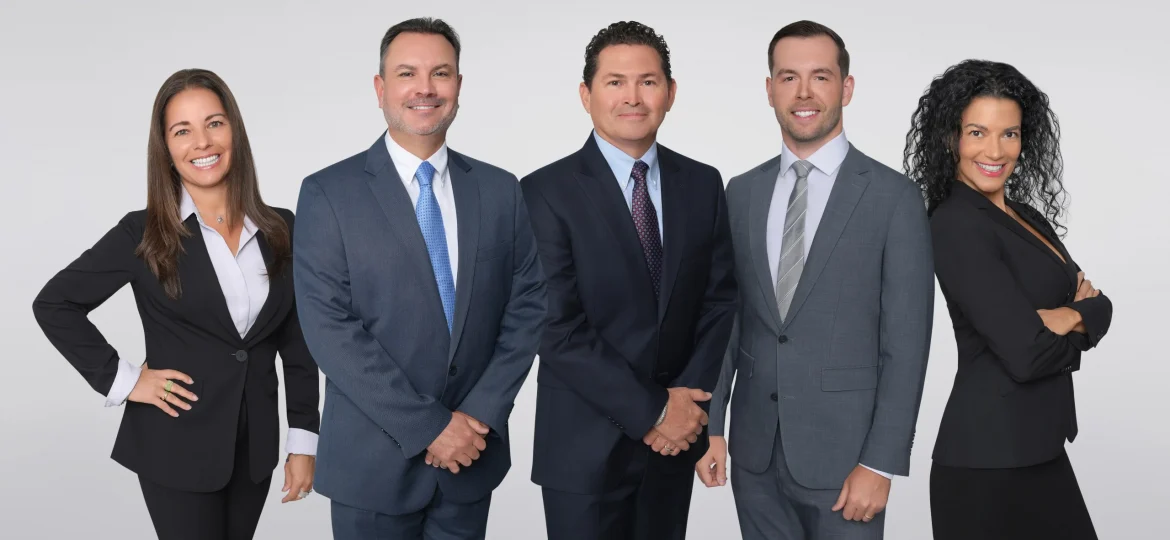
Bad Faith Insurance Tactics After Florida Personal Injury Claims: Red Flags to Watch
After suffering injuries in an accident, the last thing you should have to worry about is fighting your own insurance company for the coverage you’ve paid for. Unfortunately, insurance bad faith practices are surprisingly common in Florida, where companies sometimes prioritize profits over their legal obligations to policyholders.
Insurance bad faith occurs when an insurance company unreasonably denies, delays, or underpays a valid claim. In Florida, insurers have a legal duty to act in good faith when handling claims, but many employ tactics designed to minimize payouts or avoid them altogether. Understanding these red flags can help you protect your rights and hold insurance companies accountable.
Understanding Insurance Bad Faith Under Florida Law
Legal Standards for Good Faith
Florida Statutes Section 624.155 requires insurance companies to act in good faith when handling claims. This means they must thoroughly investigate claims, communicate clearly with policyholders, and make fair settlement offers based on the evidence. When insurers fail to meet these standards, they may be liable for bad faith damages beyond the original claim amount.
Types of Bad Faith Claims in Florida
First-Party Bad Faith occurs when your own insurance company treats you unfairly. This commonly happens with PIP (Personal Injury Protection), uninsured motorist, or underinsured motorist claims after accidents.
Third-Party Bad Faith involves situations where another person’s insurance company refuses to settle within policy limits when liability is clear, potentially exposing their insured to excess judgment.
Common Bad Faith Tactics Used by Insurance Companies
Unreasonable Claim Denials
One of the most blatant forms of bad faith is denying valid claims without proper justification. Insurance companies may deny claims based on technicalities, misinterpretation of policy language, or insufficient investigation.
Red Flags to Watch:
- Denial letters that don’t clearly explain the reason for denial
- Rejection based on minor paperwork errors or technicalities
- Denying coverage for treatments that are clearly covered under your policy
- Claiming pre-existing conditions without medical evidence to support their position
Excessive Delays in Processing Claims
Insurance companies often use delay tactics hoping that injured parties will accept lowball offers or abandon their claims altogether. While some delay is expected for complex investigations, unreasonable delays can constitute bad faith.
Warning Signs Include:
- Failing to acknowledge receipt of your claim within a reasonable timeframe
- Requesting the same documents multiple times
- Scheduling and rescheduling examinations or inspections without valid reasons
- Taking months to make coverage decisions on straightforward claims
Inadequate Investigation Practices
Insurers have a duty to thoroughly investigate claims before making coverage decisions. Bad faith occurs when they fail to conduct reasonable investigations or ignore evidence that supports your claim.
Examples of Inadequate Investigation:
- Not reviewing all medical records and bills
- Failing to interview witnesses or obtain police reports
- Refusing to consider expert opinions or medical testimony
- Making coverage decisions without reviewing all available evidence
Lowball Settlement Offers
Insurance companies often make settlement offers significantly below the actual value of claims, hoping that injured parties will accept out of financial desperation or lack of knowledge about their claim’s true worth.
Red Flags for Unfair Settlements:
- Initial offers that don’t account for ongoing medical treatment
- Refusing to negotiate or provide justification for low offers
- Pressure tactics urging quick acceptance of inadequate settlements
- Ignoring documented damages or future medical needs
Specific Bad Faith Issues Common in Florida
PIP Insurance Bad Faith
Florida’s no-fault insurance system requires all drivers to carry Personal Injury Protection (PIP) coverage, but insurers often use bad faith tactics to avoid paying these benefits.
Common PIP Bad Faith Practices:
- Requiring unnecessary Independent Medical Examinations (IMEs)
- Denying coverage for reasonable and necessary medical treatment
- Disputing the relationship between injuries and the accident without medical basis
- Failing to pay benefits within the statutory timeframes
Uninsured/Underinsured Motorist Claims
When you’re injured by a driver with insufficient insurance, your own UM/UIM coverage should provide protection. However, insurers often treat these claims with extra scrutiny and employ bad faith tactics.
UM/UIM Bad Faith Red Flags:
- Disputing liability when it’s clearly established
- Undervaluing injuries or claiming they’re not as severe as documented
- Refusing to consider the full extent of damages including pain and suffering
- Requiring excessive documentation or multiple examinations
Hurricane and Natural Disaster Claims
Florida’s exposure to hurricanes and natural disasters creates opportunities for insurance bad faith, particularly when companies try to minimize payouts for property damage that leads to personal injuries.
The Financial Impact of Insurance Bad Faith
Damages Beyond Your Original Claim
When insurance companies act in bad faith, Florida law allows you to recover more than just your original claim amount. Successful bad faith cases can result in:
- Compensatory Damages: The full amount of your original claim plus additional damages caused by the bad faith conduct
- Consequential Damages: Financial losses resulting from the insurer’s bad faith, such as additional medical expenses or lost wages
- Attorney’s Fees: In many cases, the insurance company must pay your legal fees
- Punitive Damages: In cases of egregious conduct, courts may award punitive damages to punish the insurer
The True Cost of Delayed Treatment
When insurance companies delay or deny coverage for necessary medical treatment, the consequences extend far beyond the immediate financial burden. Delayed treatment can:
- Worsen your medical condition and extend recovery time
- Lead to additional complications requiring more expensive treatment
- Result in permanent disabilities that could have been prevented
- Cause lost wages and reduced earning capacity
How to Protect Yourself from Bad Faith Practices
Document Everything
Maintain detailed records of all communications with your insurance company, including dates, times, and the names of representatives you speak with. Save all letters, emails, and claim documents.
Understand Your Policy
Review your insurance policy carefully to understand your coverage limits, deductibles, and the claims process. Don’t rely solely on what insurance representatives tell you about your coverage.
Seek Medical Treatment
Don’t delay necessary medical treatment because of insurance company delays or denials. Your health should be the priority, and documentation of your injuries and treatment will strengthen any potential bad faith claim.
Be Wary of Quick Settlement Offers
Insurance companies often make quick, low settlement offers hoping you’ll accept before understanding the full extent of your injuries and damages. Consult with an attorney before accepting any settlement offer.
When to Contact a Bad Faith Insurance Attorney
Early Warning Signs
Contact an attorney immediately if you notice patterns of unreasonable behavior from your insurance company. Early intervention can often resolve issues before they escalate and protect you from further bad faith conduct.
Time Limitations
Florida has specific statutes of limitations for bad faith claims, and insurance companies are aware of these deadlines. Don’t wait too long to seek legal advice, as crucial evidence may be lost and deadlines may pass.
Complex Cases Require Experience
Insurance bad faith law is complex and constantly evolving. Insurance companies have teams of experienced lawyers working to minimize their exposure. You need equally experienced representation to level the playing field.
How Fuentes & Berrio Fights Insurance Bad Faith
Thorough Case Investigation
We conduct comprehensive investigations of your insurance company’s handling of your claim, including reviewing all claim files, communications, and internal company documents that may reveal bad faith practices.
Expert Medical and Economic Analysis
Our team works with medical experts and economists to fully document the extent of your injuries and the true value of your claim, countering insurance company attempts to minimize your damages.
Aggressive Negotiation and Litigation
We’re not afraid to take insurance companies to court when they act in bad faith. Our track record of successful verdicts and settlements motivates insurance companies to negotiate fairly rather than face us in trial.
Maximizing Your Recovery
Beyond your original claim, we pursue all available damages including consequential damages, attorney’s fees, and punitive damages when appropriate. Insurance companies need to be held accountable for their bad faith conduct.
The Broader Impact of Fighting Insurance Bad Faith
Protecting Other Policyholders
When we successfully pursue bad faith claims, it sends a message to insurance companies that these practices have consequences. This helps protect other policyholders from similar treatment.
Ensuring Fair Treatment
Insurance companies should honor their contractual obligations and treat policyholders fairly. By holding them accountable, we help ensure the insurance system works as intended.
Don’t Let Insurance Companies Take Advantage
If you suspect your insurance company is acting in bad faith, don’t suffer in silence or accept unfair treatment. You have rights under Florida law, and insurance companies should be held accountable when they violate their duty of good faith.
The experienced attorneys at Fuentes & Berrio understand the tactics insurance companies use and know how to fight back effectively. We’ve successfully represented numerous clients in bad faith cases, recovering not just their original claim amounts but additional damages for the harm caused by insurance company misconduct.
Contact us today for a free consultation if you believe your insurance company is treating you unfairly. We’ll review your case, explain your rights, and help you understand all available options for holding your insurance company accountable.
Don’t let insurance bad faith add insult to your injury. Let us fight for the fair treatment and full compensation you deserve.


